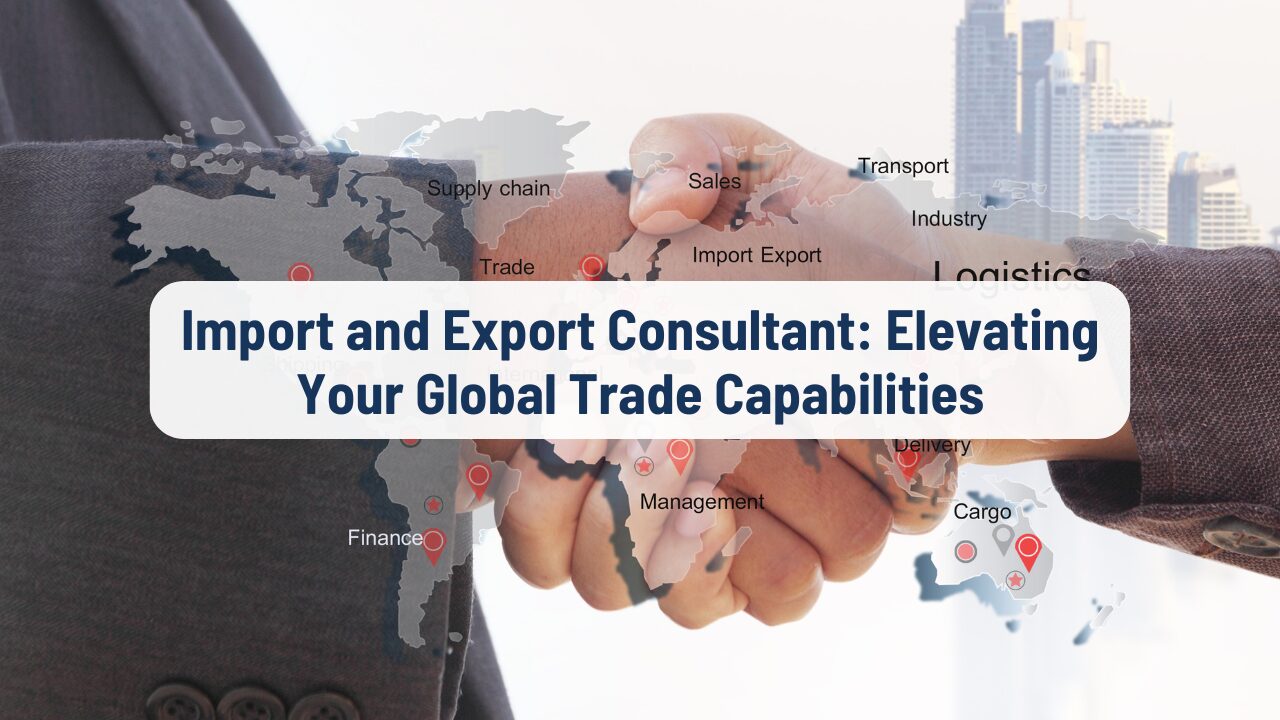
In today’s rapidly evolving global marketplace, businesses face challenges and opportunities in cross-border trade. An import and export consultant plays a pivotal role in guiding companies through the intricacies of international commerce, ensuring compliance with regulatory frameworks, and optimising global supply chains. This guide explores the responsibilities, benefits, and strategic value of partnering with an import and export consultant.
What Is an Import and Export Consultant?
An import and export consultant is a specialised professional who provides expert guidance on international trade operations. They understand the complex regulatory environments, customs procedures, and market dynamics that govern the movement of goods across borders. These consultants help businesses streamline operations, mitigate risks, and seize new market opportunities by offering tailored advice.
Key Roles and Responsibilities
1. Navigating Regulatory Compliance
Import and export consultants ensure your business complies with all relevant international trade regulations. They:
- Interpret and Apply Trade Laws: Clarify customs duties, trade agreements, and import/export restrictions legislation.
- Handle Documentation: Supervise the preparation and submission of vital documents such as commercial invoices, packing lists, and certificates of origin.
- Ensure Licence and Permit Acquisition: Assist in obtaining necessary export or import licenses to maintain seamless operations.
2. Optimising Supply Chain and Logistics
Efficient logistics and supply chain management are at the heart of successful international trade. Consultants help by:
- Assessing Shipping Options: Advising on the most cost-effective and efficient shipping methods, whether by sea, air, or road.
- Managing Freight Forwarding and Warehousing: Coordinating with freight companies and storage providers to ensure timely delivery and inventory management.
- Reducing Transit Risks: Implementing risk management strategies to safeguard against delays, damage, or unexpected costs.
3. Strategic Market Entry
A key aspect of an import and export consultant’s role is to identify and facilitate entry into new international markets. This includes:
- Market Research and Analysis: Evaluating potential markets based on economic indicators, competitive landscape, and consumer trends.
- Customising Product or Service Offerings: Helping businesses adapt their offerings to meet local regulations and cultural preferences.
- Negotiating Trade Agreements: Facilitating contract negotiations with international partners to secure favourable terms and reduce trade barriers.
4. Financial and Risk Management
Managing costs and mitigating financial risks are essential for successful international trade. Consultants support businesses by:
- Cost Analysis: Assessing the total cost of import/export operations, including shipping, taxes, and insurance.
- Risk Mitigation: Developing contingency plans to address currency fluctuations, geopolitical risks, and market volatility.
- Optimising Trade Finance: Advising on financing solutions and payment methods to enhance cash flow and reduce financial exposure.
Why Partner with an Import and Export Consultant?
Expertise and Insights
Import and export consultants bring a wealth of knowledge and years of practical experience. With their assistance, businesses can:
- Stay Current with Regulatory Changes: Benefit from up-to-date advice on shifting trade laws and international agreements.
- Leverage Global Networks: Access established connections with customs officials, logistics providers, and trade organisations.
- Accelerate Growth: Successfully navigate the complexities of international trade to expand market reach and operational efficiency.
Cost-Effective Solutions
Outsourcing specialised trade consultancy services is often more cost-effective than developing in-house expertise. Consultants help companies:
- Avoid Costly Mistakes: Minimise financial penalties and delays by ensuring legal and regulatory compliance.
- Streamline Operations: Adopt efficient logistics and supply chain strategies that reduce operational costs.
- Improve Profitability: Enhance overall profitability by optimising the balance between cost, speed, and reliability in global shipping.
Conclusion
An import and export consultant is an invaluable partner in international trade. They provide strategic insight and practical solutions to overcome the challenges of cross-border commerce. Through expert guidance on regulatory compliance, logistics optimisation, and market entry strategies, these professionals confidently enable businesses to expand their global footprint.
Are you ready to transform your international trade operations and unlock new global opportunities? Engage with an experienced import and export consultant today and pave the way for sustained international success.
For Legal and Business Solution, visit: ST Consultancy
Follow Us:
Facebook – https://www.facebook.com/profile.php?id=61564973949911
Instagram – https://www.instagram.com/stconsultancy_stc/
Twitter – https://x.com/st_stc43927
LinkedIn – https://www.linkedin.com/company/st-consultancy-ltd, Dr. Erika Szita-Szegedi, Manmeet Abroll

